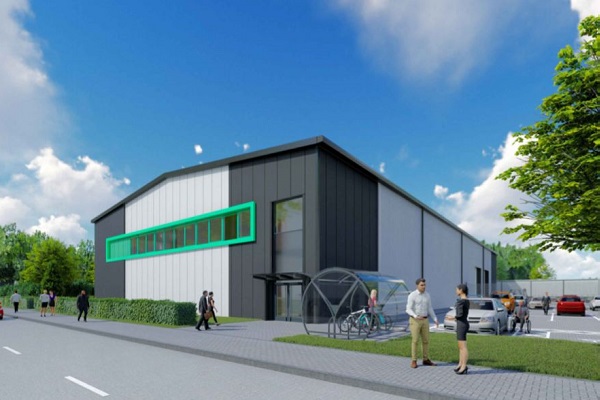Sites
The North East offers companies the space to grow, with ample development sites and some of the lowest costs in the UK for manufacturing operations. Industrial property costs are highly competitive, with rent starting from £2.50 per sq ft and bespoke, purpose-built manufacturing units are available. Industrial property costs are less than half as expensive as those in Southampton and 28% cheaper than Birmingham.
Development land such as Jade Business Park in County Durham, the International Advanced Manufacturing Park (IAMP) in Sunderland/South Tyneside and Ashwood Business Park in Northumberland are great examples of Enterprise Zone sites available in the region for the development of new manufacturing facilities.
North East Investment Zone (NEIZ)
The NEIZ will catalyse the clean energy and green manufacturing sectors. It builds on the regions rich heritage in advanced manufacturing, strengths in supply chains, and expertise in the sector.
As part of the NEIZ, the region will introduce a number of ‘IZ Tax Sites’ (where businesses located on the site can access tax benefits) or ‘IZ Growth Sites’ (where businesses located on the site can benefit from access to additional flexible spending). The following locations are included within the North East IZ and will benefit from these measures:
- Blyth Energy Central in Northumberland
- River Tyne Economic Corridor in Newcastle, North Tyneside, and Northumberland
- International Advanced Manufacturing Strategic Site (IAMSS) in Sunderland and South Tyneside
- NETPark (North East Technology Park) in County Durham
Key research initiatives
North East England is renowned for its innovation. The region offers many cross-sector working opportunities and is pioneering testing new technologies and practices to further develop the UK rail sector. Newcastle University is one of three UK universities leading the Rolling Stock Innovation Centre.
Key university research institutes that support the rail sector include:
- Institute for Automotive and Manufacturing Advanced Practice (AMAP)
- NewRail, Newcastle Centre for Railway Research – Newcastle University
- Transport Operations Research Group (TORG) – Newcastle University
The Institute of Electrification and Sustainable Advanced Manufacturing (IESAM) is the first institute to address the industry need for PEMD training in the North East. The project brings together the North East Institute of Technology and key regional higher education and further education providers. It’s funded by the Driving the Electric Revolution Challenge, co-funded by Newcastle University, and delivered by Innovate UK for UK Research and Innovation.
DER-IC North East, one of the four national centres of the Driving the Electric Revolution programme, seeks to make the UK a global leader in the manufacture of core technologies that underpin electrification: power electronics, electric machines and drives (PEMD). It will accelerate the UK’s ability to deliver next-generation electric vehicles, hybrid aircraft, energy generation, smart grids, industrial drives, consumer products, low-carbon off-highway for construction and agriculture, low-carbon maritime and rail.



